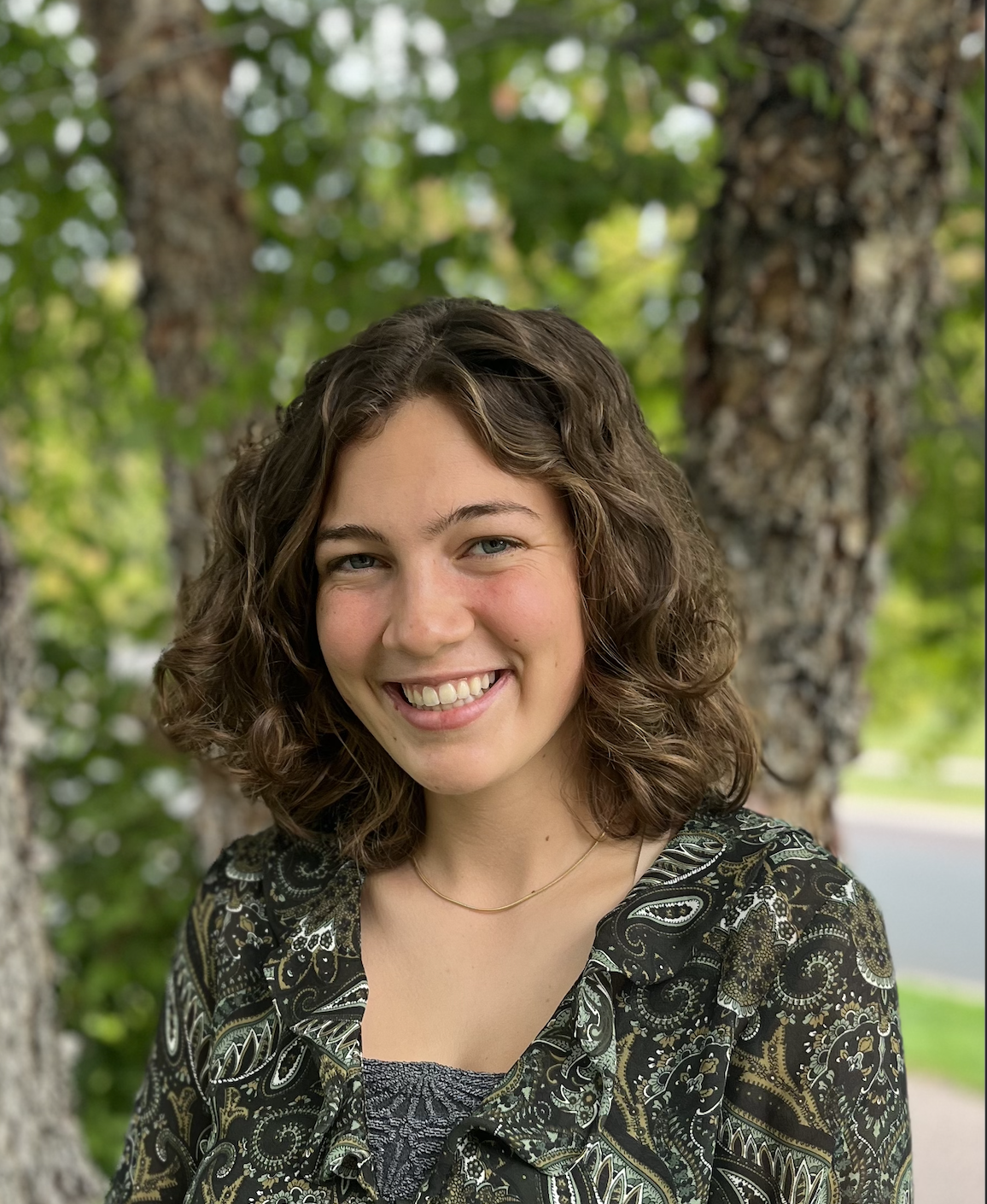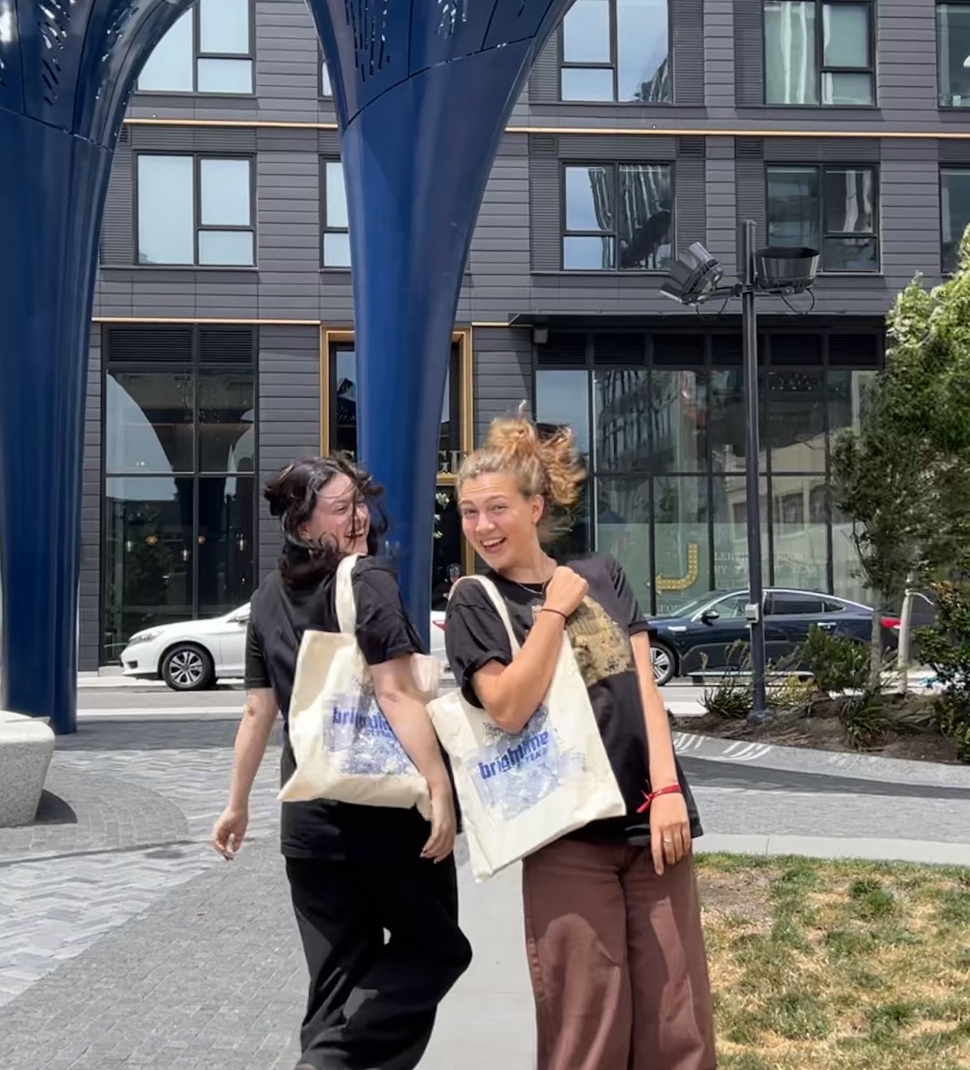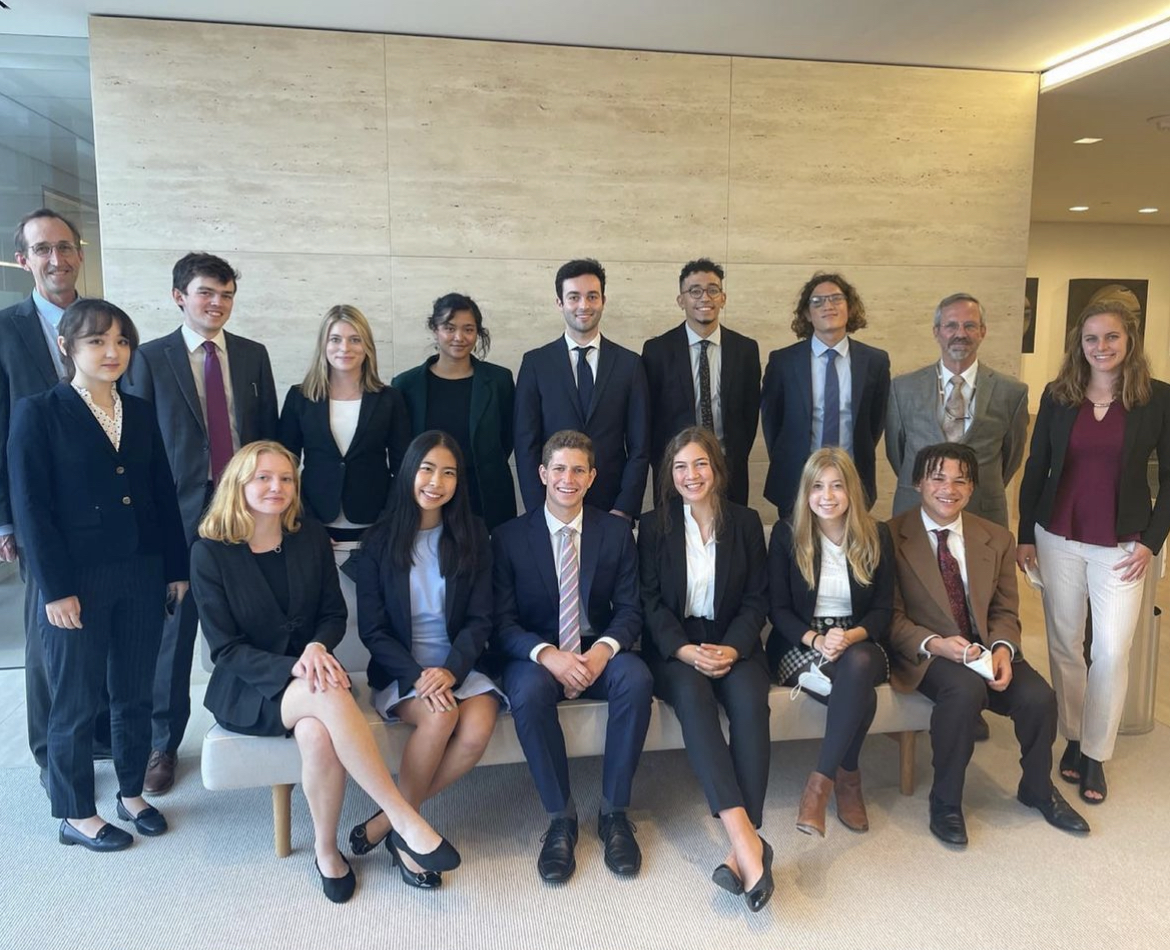Student Spotlight: Caroline Sassan ’24
This environmental studies and IAPA concentrator seeks to create direct change in city politics.
Uplifting community voices in environmental justice advocacy drives Caroline Sassan ’24, who believes that addressing environmental issues is a valuable way of confronting broader injustices. Though climate change is a global crisis, its devastating impacts are anything but universal. Sassan believes that creating space for nuance and specificities at the local level offers more potential to meaningfully address the past, present, and future of environmental harm. 
A double concentrator in environmental studies and international and public affairs (IAPA), Sassan used to dream of working on climate policy issues at an international organization like the United Nations. But over time and with experience, she realized that working at the local level allows people like her to develop strong bonds, hold themselves accountable to communities, and elevate local leadership. “Climate politics at the city level, for example, can engage more directly with certain groups and priorities and support them with concrete policy, ,” Sassan said.
Sassan recently co-authored a research paper, “Energy Citizens ‘Just Like You’? Public Relations Campaigning by the Climate Change Counter-movement, with Visiting Professor of Environment and Society Robert Brulle. “The article focuses on climate disinformation and how that disinformation can be used to heighten power differences,” said Sassan. With generous marketing and public relations budgets, many large fossil fuel companies launch greenwashed campaigns that significantly outnumber environmentally-focused initiatives. Such disparity of power and the industry’s assertions about their “contributions to green initiatives” negatively impacts democratic practices, Sassan noted.
Meaningful experiences at Brown and beyond

Sassan greatly appreciates the opportunities IBES has offered for engagement beyond the syllabus. Last summer, for example, she engaged on the local level with Brightline Defense, a San Francisco nonprofit that focuses on environmental justice. Sassan first encountered the organization in Senior Lecturer Dawn King’s class, ENVS 0110: “Humans, Nature and the Environment: Addressing Environmental Change in the 21st Century.” After Brightline’s executive director Eddie Ahn '05 spoke to the class, Sassan stayed in touch with Ahn and ultimately landed the Bay Area internship, which the Institute at Brown University for Environment and Society (IBES) funded.
Brightline focuses on two main objectives: policy research and advocacy, and direct services, including neighborhood-specific projects. During her internship, Sassan was mostly engaged with policy research around the use of offshore wind sources.
Another of Brightline’s major projects is to create a more specific and precise air sensing map for San Francisco, much like how IBES’ own Breathe Providence project aims to characterize Providence air quality on a hyperlocal level. “Currently, most maps report only one statistic for the entirety of San Francisco, yet air quality varies drastically between neighborhoods; one sensor can’t capture it all,” Sassan explained.
Engaging with policymakers and lobbyists
Sassan’s work in IBES’ Climate Development Lab (CDL) has also informed her thinking about climate change challenges.

Sassan first learned about the CDL through ENVS 1574: “Climate Policy Research Organizations and Obstruction,” taught by IBES Professor and CDL Director Timmons Roberts. One of IBES’ flagship courses, ENVS 1574 brings students to Washington, D.C., for a week each fall to present their research and interact directly with policymakers and lobbyists.
“During that week, we met people from both environmental advocacy organizations and major fossil fuel industries,” said Sassan, who appreciated learning and understanding the “political psychology” of the latter.
Continuing to explore the complexities of climate change
Throughout Sassan’s involvement with environmental issues and projects, she continues to seek out opportunities to support those most impacted by environmental injustices. “Above all, it’s important to work with the communities that your work aims to serve,” she said. “They understand the complexities and priorities of these issues best.”